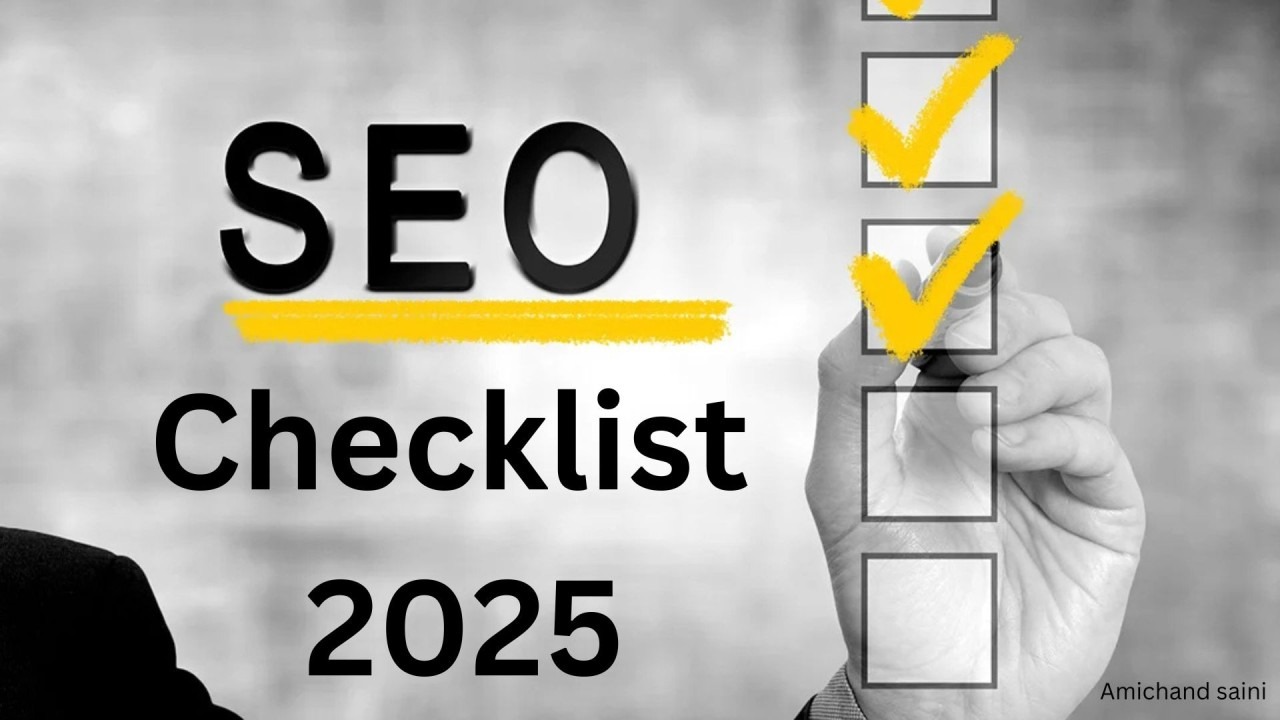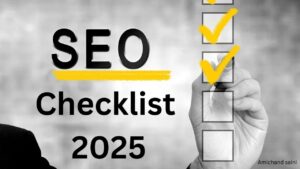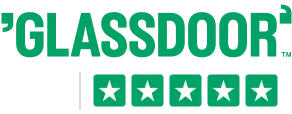Updated and strategic SEO is needed in order to stay ahead of the search rankings. Below are some SEO checklist for 2025 that can help optimize a website for higher visibility on Google.
1. On-Page SEO
On-page SEO ensures that individual pages are optimized for keywords and user experience. Focus on these critical elements:
a.) Meta Tags:
Come up with creative and short meta titles and descriptions that contain the relevant keywords to increase the click-through rate.
b.) Headings:
Organize your content with proper heading tags, such as H1, H2, and H3, to make it more readable and highlight primary topics.
c.) Alt Tags:
Use descriptive alt text on images to make them more accessible and to help search engines understand visual content.
d.) Text-to-HTML Ratio:
Sustain an optimal ratio between text and code to ensure that content is superior to extraneous HTML.
e.) Sitemap.xml and Sitemap.html:
Upload XML sitemaps to search engines and provide HTML sitemaps for improved navigation.
f.) Language Tag:
Use the language attribute to specify the default language of your website when targeting multiple regions for your international SEO.
g.) Favicon:
An identifiable favicon enhances user trust and brand familiarity
h.) Robots.txt:
Optimize your robots.txt file to better guide crawling by the search engine’s crawlers.
2. Technical SEO
Technical SEO addresses the backend aspects of your website, ensuring smooth crawling and indexing by search engines.
a.) Crawlability:
Ensure all pages are easily crawlable by search engine bots.
b.) Indexation:
Regularly monitor indexed pages to ensure only the most relevant content is included.
c.) Robots Tag:
Use appropriate robots meta tags (noindex, nofollow) where needed.
d.) Canonical Issues:
Resolve duplicate content by using canonical tags to direct search engines to the preferred version of a page.
e.) Website Speed:
Optimize to improve loading times, enhance user experience, and reduce bounce rates.
f.) Site Security SSL:
Ensure your website is encrypted with HTTPS to improve security and gain confidence from users.
g.) URL Structure:
Use clean, descriptive, and keyword-rich URLs for better readability and SEO purposes.
3. Off-Page SEO
Off-page SEO focuses on establishing the reputation and authority of your website through external efforts. This includes:
a.) Link Building:
Acquire high-quality backlinks from authoritative sources to increase credibility.
b.) Social Distribution:
Distribute your content to different social media platforms, hence increasing engagement and traffic.
c.) Brand Mentions:
Monitor and encourage the mentions of your brand on the web to enhance your online presence.
d.) Customer Reviews:
This encourages positive reviews of your business on Google My Business and other sites.
e.) Guest Blogging:
Publishing content on reputable sites enhances the reach and acquisition of backlinks.
f.) Influencer Marketing:
This involves engaging influencers to amplify your brand and drive traffic.
4. Keywords Research
Keyword research will forever form the basis of SEO checklist. Pay much attention to the following kinds for optimizing search;
a.) Informational keywords:
Select the questions that may have something useful for answers.
b.) Commercial keywords:
Words that include products or service interest by customers such as “best” or “top”.
c.) Navigational keyword:
Your keywords can be helpful when containing your brand-related information to seek a website that will eventually be direct to users.
d.) Transactional keyword:
Use those who intend to purchase, such as “buy” or “order”.
e.) Geographical Keywords:
Incorporate location-based keywords to improve local search visibility.
Google Search Console
Google search console is essential for tracking your website’s performance. Use it to monitor:
- Index coverage reports to ensure pages are properly indexed.
- Search analytics to identify keywords driving traffic.
- Fix crawling errors promptly.
Google Analytics
Google analytics provides insights into user behavior. Leverage it to:
- Track visitor demographics and engagement metrics.
- Monitor bounce rates and adjust content accordingly.
- Evaluate conversion rates to refine marketing strategies.
SEO Plugins for WordPress Website
For WordPress users, SEO plugins simplify optimization. Popular plugins like Yoast SEO or Rank Math offer:
- Real-time content analysis.
- Suggestions for meta tags and keyword density.
- Integration with Google tools for seamless tracking.
This 2025 SEO checklist allows your website to be sufficiently optimized so that it can compete effectively in terms of rankings in search engines. Combine on-page, technical, and off-page with thorough keyword research and analytics, and you will manage to stay ahead in an ever-changing digital landscape. Get started today to ensure you have a solid online presence tomorrow.









